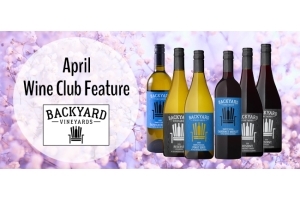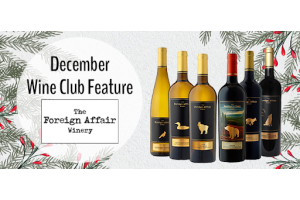Wine 101: How Do Wine Competitions Work?
In his Wine 101 blog post last Monday, Kurtis Kolt talked about the value of wine awards to wineries — the impact the awards can have on sales, etc.
Woah - back it up, Kolt — how do these competitions work? Well, as it turns out, Kurtis touched on how the B.C. Wine Awards — which I judged at in 2013 and am judging at again this year — work.
As it happens I’m heading to Niagara this morning to judge at WineAlign’s National Wine Awards of Canada (as is MWC contributor Michelle Bouffard), which I first judged at in 2013 and for years before that in its previous incarnation as WineAccess’ Canadian Wine awards.
Over the course of the next five days, over 1,400 Canadian wines will be vying for bronze, silver, gold, and platinum medals. I’ll return with a veritable arsenal of tasting notes and a clearer idea of what’s working well in Canada’s major wine-producing areas.
For competitions, wineries submit a few bottles of each wine they’d like in the competition. Once all wines are received, organizers start creating flights of wines — groups of wines that are either alike by grape(s) or style. Merlot, Bordeaux-style blends, sparkling wines, unoaked Chardonnay, vidal icewine… you get the idea.
In the back room, wines are poured into corresponding numbered glasses and then taken to the judging room for a group of judges to taste, score, and talk about. Like Kurtis mentioned in his post, wines are tasted blind so judges don’t know the producer, region or price.
Scores are tabulated by backroom folks using some fancy software-y type thing, and wines with the best scores move forward to the final rounds of judging, while the rest fall by the wayside (not literally, I’m sure).
The surviving wines are re-jigged into new flights, poured, and presented to judges again, and awards are hashed out based on scores, discussion, consensus, etc. In the case of the National Wine Awards of Canada I expect 8-12 wines to appear in front of me starting at 8:30 a.m., to repeat that 5 times minimum before lunch and then five more times after lunch. Then do that for four or so days. While sitting in a chilly hotel convention room.
But wine competitions don’t work without a dedicated group of volunteers to wheel out wines, grab re-pours for off bottles, refill water and bread, clean tables, pour wines, pour more wines, and so on. Thanks in advance, guys.
Ben MacPhee-Sigurdson is the wine columnist and literary editor for the Winnipeg Free Press. He’s on Twitter and Instagram at @bensigurdson.





